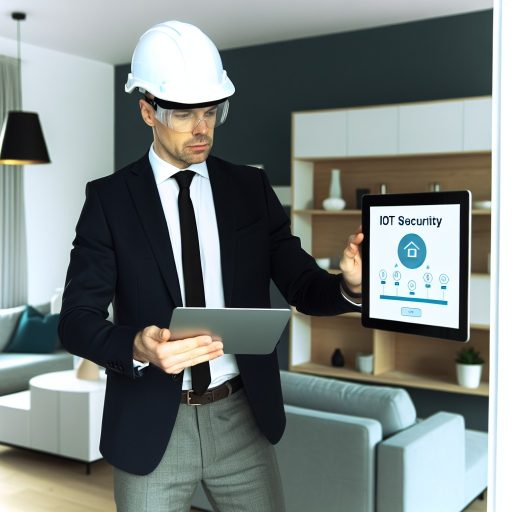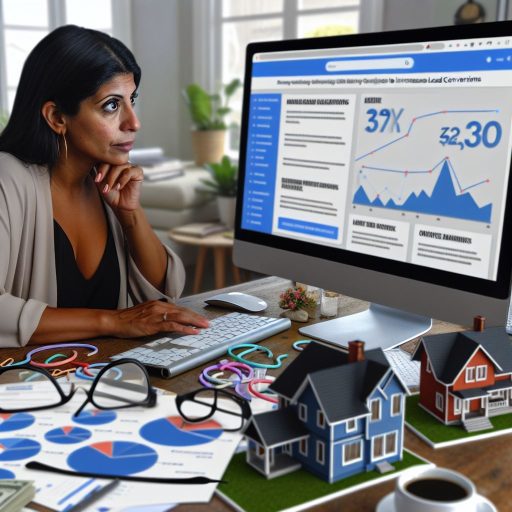Overview of Real Estate Mobile Apps for Rental Property Management
The Importance of Mobile Apps in Real Estate
Mobile apps revolutionize the real estate industry.
They provide streamlined solutions for property management and tenant needs.
Furthermore, they enhance communication between landlords and renters.
Key Features of Rental Property Management Apps
Rental property management apps include various essential features.
First, they facilitate tenant applications and screenings.
Next, they allow easy rent collection through secure payment systems.
Additionally, tenants can submit maintenance requests directly through the app.
Benefits for Property Owners
Property owners enjoy numerous advantages from using mobile apps.
These apps simplify tracking rental income and expenses.
Moreover, they assist in managing multiple properties efficiently.
Landlords can quickly access important documents and communication records.
Benefits for Tenants
Tenants also benefit significantly from rental property management apps.
They gain easy access to important property information.
Additionally, they can communicate directly with property managers.
This transparency fosters a better rental experience overall.
Examples of Popular Real Estate Mobile Apps
Several apps have gained popularity in the real estate market.
Applications like Zillow and Apartments.com provide comprehensive listings.
Others, such as Rentec Direct and AppFolio, focus on property management.
These platforms help landlords and tenants connect effectively.
Key Features of Rental Property Management Apps
User-Friendly Interface
Rental property management apps must have a user-friendly interface.
This allows both property managers and tenants to navigate easily.
A clean design enhances the user experience significantly.
Users appreciate intuitive layouts and straightforward functionality.
Tenant Communication Tools
Effective communication is crucial in property management.
Apps should include messaging features for easy interaction.
These tools help landlords and tenants address issues promptly.
Clear communication fosters positive relationships between parties.
Maintenance Request Management
Maintenance requests should be easy to submit and track.
Apps offer a streamlined process for tenants to report issues.
This ensures that property managers can respond quickly.
A robust system leads to improved tenant satisfaction.
Online Payment System
Integrating an online payment system is essential.
It allows tenants to pay rent conveniently from anywhere.
Automatic payment reminders help to avoid late fees.
This functionality simplifies financial management for landlords.
Document Storage and Accessibility
Secure storage of important documents is vital.
Apps should provide tenants and owners access to lease agreements.
This ensures that both parties have necessary information readily available.
Easy access protects against disputes and misunderstandings.
Property Listings and Tours
Management apps should include features for property listings.
Property photos and detailed descriptions attract potential renters.
Virtual tours can enhance the viewing experience.
Highlighting available properties maximizes visibility and interest.
Analytics and Reporting
Using analytics helps landlords understand rental performance.
Apps can offer insights into occupancy rates and revenue trends.
Reports enable data-driven decision-making for property managers.
This information aids in identifying areas for improvement.
Benefits of Using Mobile Apps for Property Managers
Enhanced Communication
Mobile apps streamline communication between property managers and tenants.
Instant messaging features foster quick resolution of queries.
Notifications can alert tenants about important announcements.
This fosters a positive tenant experience overall.
Efficient Rent Collection
Mobile apps simplify the rent collection process.
Tenants can pay rent conveniently via their smartphones.
This method reduces late payments due to easy accessibility.
Integrated tracking helps property managers maintain accurate records.
Maintenance Management
Property managers can receive real-time maintenance requests through mobile apps.
Tenants can easily report issues, improving response times.
This proactive maintenance approach ensures tenant satisfaction.
Additionally, tracking maintenance requests becomes easier.
Streamlined Documentation
Mobile apps allow property managers to store essential documents securely.
Leases, inspection reports, and maintenance records are easily accessible.
Digital documentation reduces the need for physical paperwork.
This helps in maintaining organization and efficiency.
Data Analytics and Reporting
Mobile apps provide data analytics features for property managers.
They can analyze trends in rent payments and tenant behaviors.
Reports generated help in making informed decisions.
This data-driven approach enhances overall property management.
Gain More Insights: Online Real Estate Platforms for First-Time Buyers
Tenant-Focused Features in Real Estate Mobile Apps
User-Friendly Interface
Real estate mobile apps often feature intuitive designs.
This promotes easy navigation for tenants.
Users can quickly find what they need without confusion.
Secure Payment Options
Secure payment systems are crucial for tenants.
Apps typically offer multiple payment methods.
These may include credit cards and digital wallets.
Additionally, tenants can set up automated payments.
This feature helps avoid late fees.
Maintenance Request Management
Tenants can submit maintenance requests directly through the app.
This streamlines communication between tenants and landlords.
Furthermore, notifications inform tenants about the status of their requests.
Tenant Portal Access
Mobile apps often include a tenant portal for easy access.
Here, tenants can manage their leases and view important documents.
This centralized information simplifies rent tracking and lease renewals.
Community Engagement Features
Some apps foster a sense of community among tenants.
They might include forums or social features.
These allow tenants to connect and share local insights.
Real-Time Notifications
Timely notifications keep tenants informed about crucial updates.
This includes payment reminders and community announcements.
As a result, tenants stay engaged and aware of their environment.
Virtual Tours and Listings
Real estate apps provide virtual tours of available properties.
This feature allows prospective tenants to explore listings conveniently.
Additionally, it saves time and helps in making informed decisions.
Amenities and Local Services Information
Apps often list nearby amenities and services for tenants.
This includes grocery stores, parks, and public transport options.
Such information enhances tenant satisfaction and community integration.
You Might Also Like: Using AI for Real Estate Risk Assessment and Management
Comparative Analysis of Popular Rental Management Apps
Overview of Rental Management Apps
Rental management apps streamline property management tasks.
They cater to landlords, property managers, and tenants.
Many offer features such as rent collection and maintenance requests.
Popular options include Cozy, Rentec Direct, and TenantCloud.
This analysis compares their key features, pricing, and user experience.
Cozy
Cozy provides a free platform for landlords and tenants.
It offers online rent collection, background checks, and lease tracking.
This app is user-friendly and suitable for small landlords.
Cozy’s functionality supports easy communication between parties.
However, it lacks advanced tools for managing multiple properties.
Rentec Direct
Rentec Direct stands out for its robust features.
It includes tenant screening, accounting, and maintenance requests.
Landlords can manage properties efficiently through its dashboard.
The pricing is reasonable for the extensive features provided.
Moreover, Rentec Direct supports integration with various accounting software.
TenantCloud
TenantCloud is a comprehensive solution for property management.
It offers both free and paid plans based on user needs.
Features include online payments, lease agreements, and maintenance tracking.
TenantCloud effectively serves both landlords and tenants.
However, support for advanced customization is somewhat limited.
Comparative Pricing
Pricing strategies differ among rental management apps.
Cozy remains free, making it ideal for budget-conscious landlords.
Rentec Direct charges a subscription fee based on property count.
TenantCloud’s pricing varies depending on feature sets selected.
Ultimately, costs depend on the scale of management needed.
User Experience
User experience is crucial in app selection.
Cozy earns praise for its simplicity and ease of use.
Rentec Direct offers a professional interface, albeit with a learning curve.
TenantCloud provides a mix of functionality and usability.
Overall, user satisfaction varies based on individual needs and preferences.
Explore Further: Using AI for Real Estate Lead Generation and Sales

Tips for Choosing the Right Mobile App for Property Management
Assess Your Property Management Needs
Start by identifying your specific property management needs.
Consider whether you manage residential or commercial properties.
Evaluating your needs will guide you in selecting suitable features.
Evaluate User Experience
A user-friendly interface is crucial for both property managers and tenants.
Look for apps that offer clear navigation and logical workflows.
Read user reviews to understand real experiences with the app.
Check for Essential Features
Different apps offer various features for property management.
- Look for features such as online rent payment and maintenance requests.
- Consider communication tools for tenants and staff interactions.
- Make sure the app provides reporting tools for financial tracking.
Consider Integration Capabilities
Your chosen app should integrate smoothly with existing systems.
Check for compatibility with accounting or leasing software.
This compatibility can streamline your workflows and reduce redundancy.
Review Pricing Structure
Evaluate the pricing model of the mobile app.
Some apps charge monthly fees, while others have one-time purchases.
Compare costs against features to determine overall value.
Test Customer Support Options
Reliable customer support is essential for smooth operation.
Look for apps that offer multiple support channels, such as chat and email.
Read reviews about their support to get a sense of responsiveness.
Evaluate Security Measures
Data security should be a priority when choosing a mobile app.
Ensure the app uses encryption and secure methods for data storage.
Verify that they comply with relevant regulations, such as GDPR.
Seek Recommendations
Ask other property managers or landlords for app recommendations.
Personal referrals can lead you to high-quality options.
Engaging in online forums can also provide valuable insights.
Learn More: Harnessing IoT To Transform Residential Property Management In The USA
Integration of Mobile Apps with Smart Home Technology
Enhancing Tenant Experience
Mobile apps offer convenience for tenants managing rental properties.
They can control smart home devices directly through these apps.
This integration simplifies tasks like lighting and thermostat adjustments.
Tenants appreciate the ability to manage their environment efficiently.
Moreover, integration enhances security features, like smart locks.
This allows tenants to monitor access to their units remotely.
Streamlined Property Management
Property managers benefit from integrated mobile apps as well.
They can monitor system statuses of smart devices throughout the property.
This data helps in proactive maintenance and timely repairs.
Through alerts, managers can address issues before they escalate.
Additionally, integration allows for automated utility tracking.
Improved Communication
Mobile apps promote effective communication between tenants and managers.
Users can send maintenance requests directly through the app.
This instant communication reduces response times significantly.
Notifications keep tenants informed about service updates and appointments.
Furthermore, apps facilitate feedback on services provided.
Cost Efficiency and Sustainability
Integrating smart technologies often leads to cost savings.
For example, smart thermostats can lower utility bills.
Additionally, these systems reduce energy consumption, promoting sustainability.
Mobile apps help track energy usage patterns effectively.
Such insights enable both tenants and managers to identify savings opportunities.
Future Trends in Integration
As technology evolves, the integration of mobile apps will grow more complex.
Expanding functionality will likely include advanced AI features.
These advancements may predict tenant needs based on their usage habits.
Future apps may facilitate seamless integration with emerging smart technologies.
The focus will remain on enhancing user experience and operational efficiency.
Future Trends in Rental Property Management Mobile Applications
Integration of Artificial Intelligence
Artificial intelligence is reshaping rental property management.
Many apps now use AI for predictive analytics.
This helps landlords make informed decisions quickly.
AI chatbots enhance tenant communication effortlessly.
Moreover, they provide instant responses to inquiries.
Enhanced User Experience Through UX Design
Mobile apps increasingly prioritize user experience.
A streamlined interface improves user satisfaction significantly.
Intuitive navigation simplifies the overall management process.
Additionally, customization options make apps more personal.
Users appreciate tailored features that meet their needs.
Adoption of Blockchain Technology
Blockchain offers enhanced security for rental transactions.
This technology provides transparent records of agreements.
It can also simplify rent payments using cryptocurrencies.
Furthermore, it ensures timely and trustworthy transactions.
Landlords and tenants benefit from reduced fraud risks.
Focus on Sustainability
Many apps now encourage sustainable practices.
They help tenants monitor energy usage effectively.
Additionally, they promote eco-friendly choices in management.
Green certifications are becoming a necessity in listings.
Landlords can market properties as sustainable living spaces.
Increased Use of Data Analytics
Data analytics is revolutionizing property management strategies.
Integrating data helps identify market trends efficiently.
Landlords can adjust rental pricing based on insights.
Moreover, analyzing tenant behavior improves retention strategies.
Data-driven decisions lead to more profitable investments.
Additional Resources
DoorLoop: Property Management Software
Automated landlord: Digital technologies and post-crisis financial …




